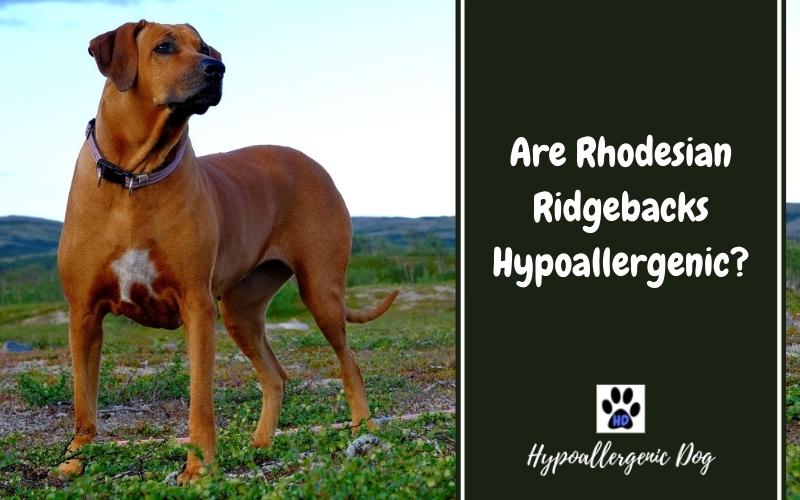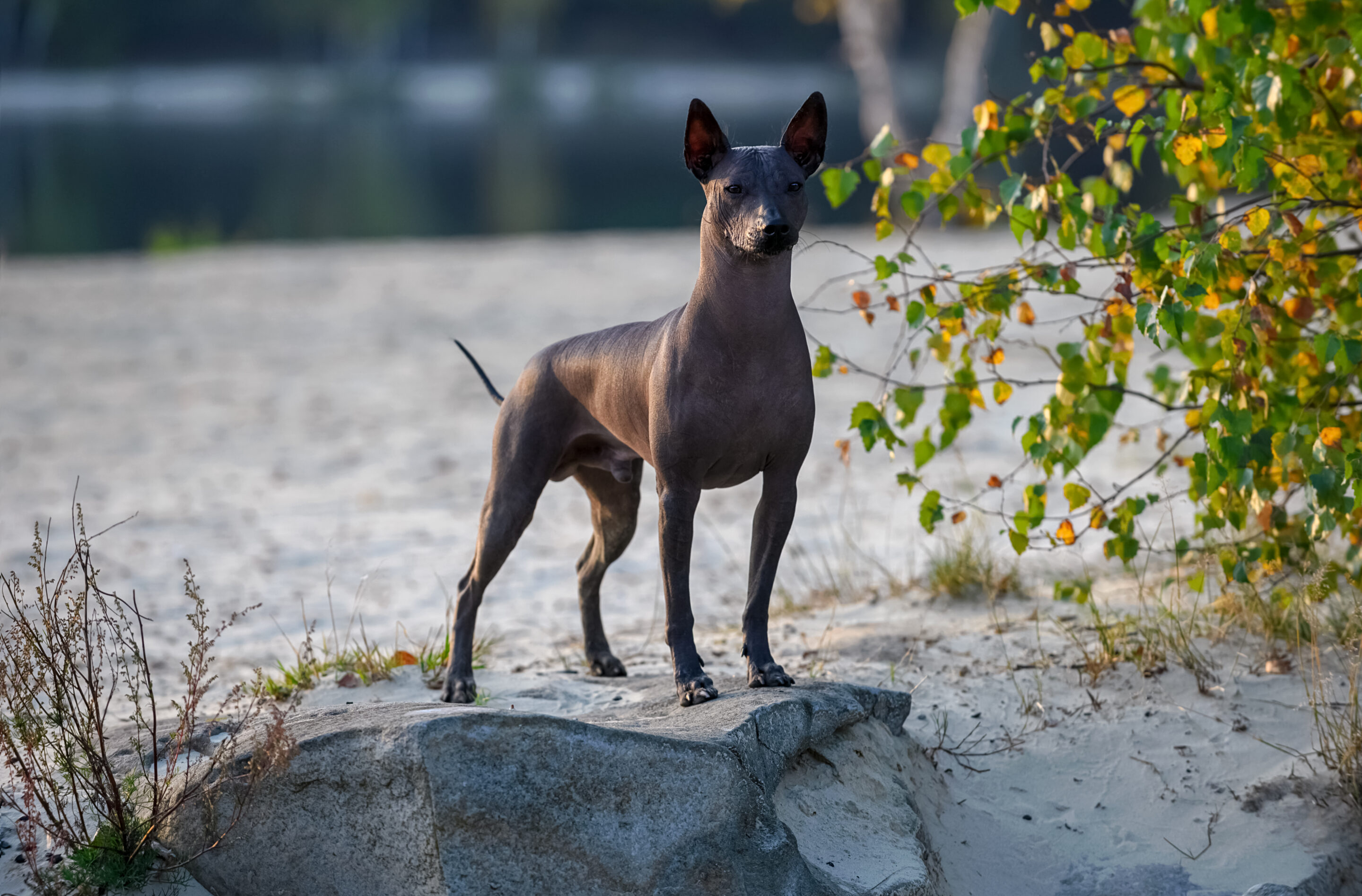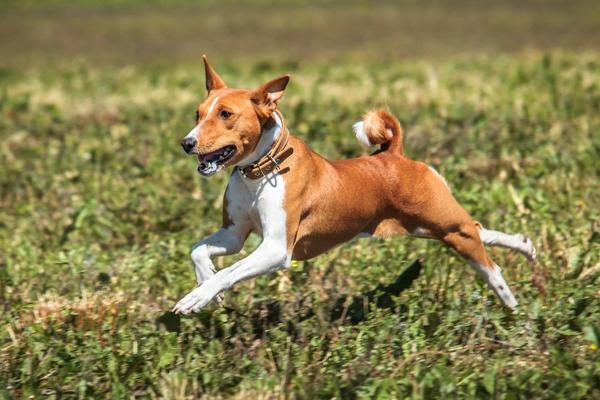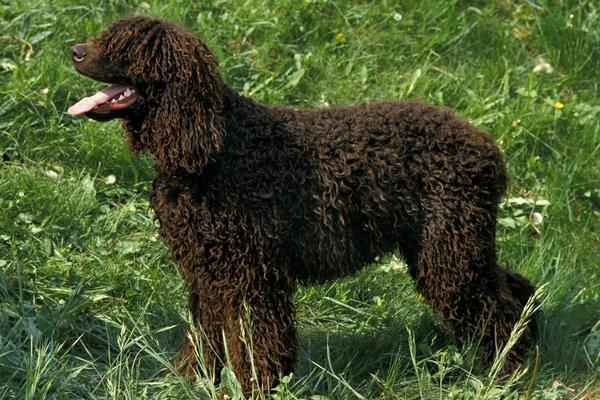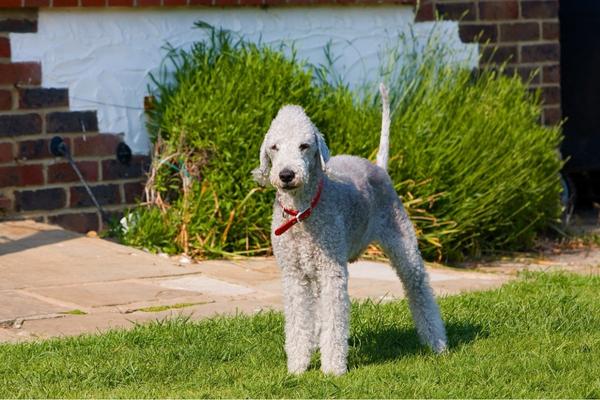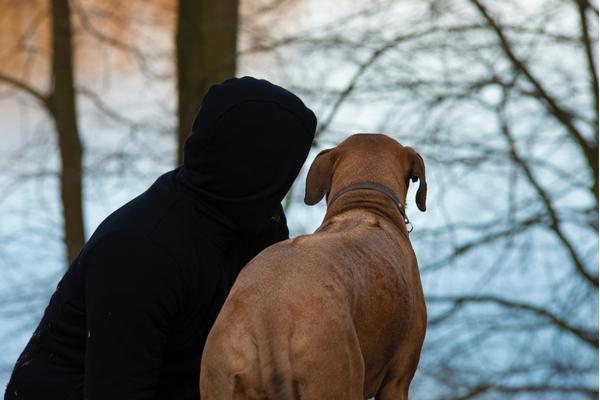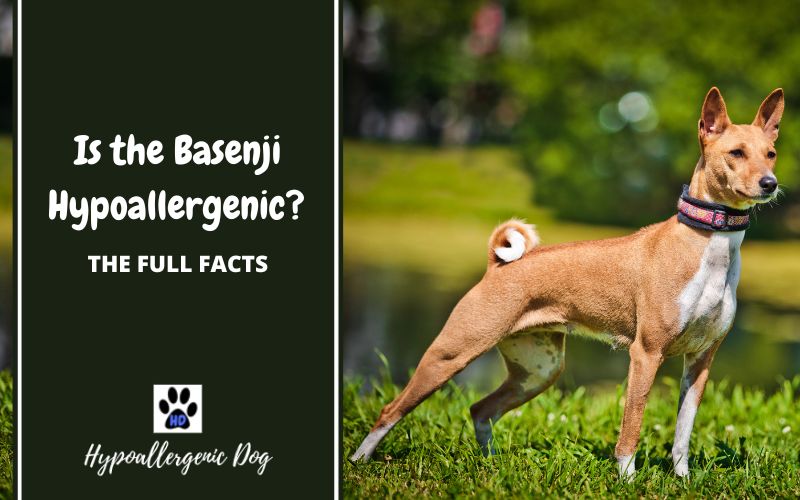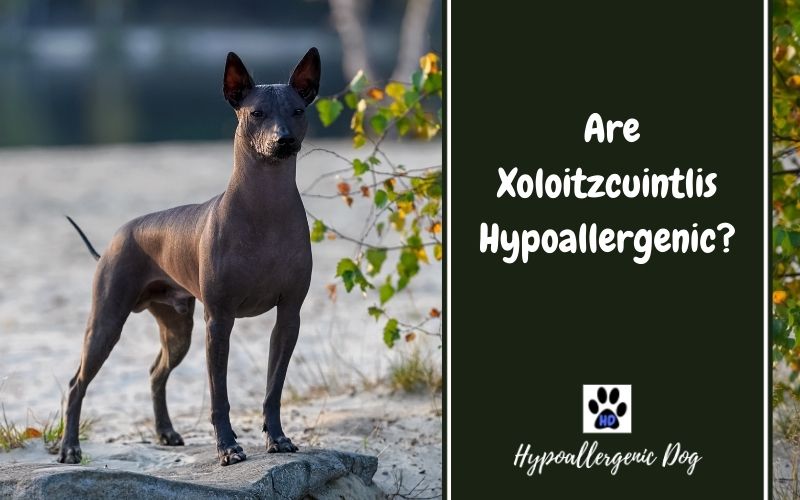Are Rhodesian Ridgebacks hypoallergenic dogs? No, the Rhodesian Ridgeback isn’t hypoallergenic. While they don’t shed as much as the Newfoundland or Labrador Retriever, for example, they still shed. Plus, there is a potential for drooling, albeit on the lower end of the scale.
Rhodesian Ridgeback Quick Facts
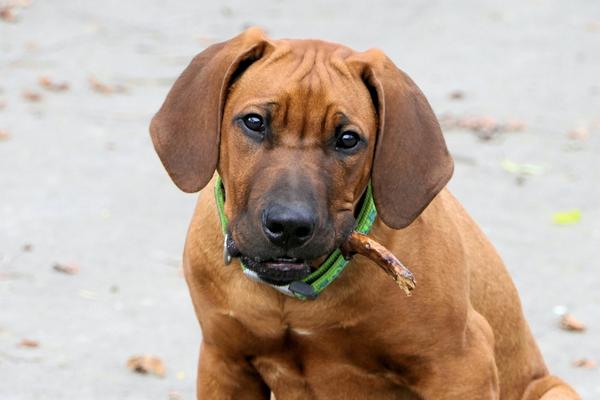
In all honesty, no dog is bonafide hypoallergenic.
That said, many breeds shed so little, they don’t stir up allergies. These ‘hypoallergenic’ dogs will allow you to fulfill your dog dream without the symptoms.
Hypoallergenic dogs shed minimally and also drool minimally, making them much more appealing to many, in comparison to your heavy-shedding or drooling dog.
Learn all about What Is a Hypoallergenic Dog? — in our guide.
This is a breed with only a single-layered coat, meaning that they don’t shed as much as double-coated breeds — but they still shed. Their top coat is short and dense. Coat colors vary from light wheaten to red wheaten, and the official standard states the Rhodesian’s coat appearance should be glossy and sleek and not silky or wooly.
Do Rhodesian Ridgebacks shed a lot? Despite not being hypoallergenic, Rhodesian Ridgebacks shed minimally in comparison to other dogs — mild to average levels. This may increase slightly during the change of seasons, but this breed doesn’t blow its coat like other breeds — for example, Huskies, Chow Chows, and Malamutes.
However, if you suffer from allergies the Rhodesian may not be the smartest decision.
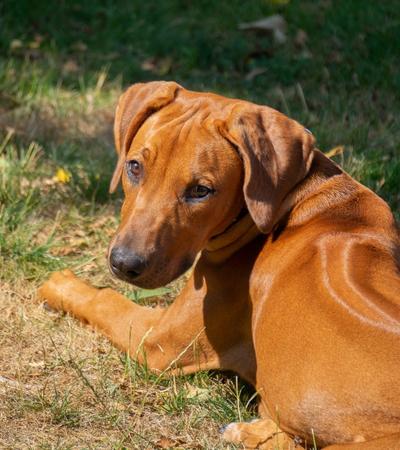
No matter what — you can’t prevent your Rhodesian Ridgeback from shedding, just like any shedding dog. However, there are steps you can take to minimize and control fur loss around your home.
1. Brush Your Rhodesian Ridgeback
Daily, if not, weekly brushing can help minimize your dog from shedding. Establishing this routine can be very beneficial for your dog, as well as yourself. This will allow for a cleaner and softer coat for your dog. Regular bathing can also help minimize shedding.
2. Create a Nonshedding Diet Plan
Health and nutrition play an essential part in coat condition. Hence, what your Ridgeback eats influences shedding.
While changing your dog’s diet won’t stop shedding completely, it can help. Ensuring your dog eats a healthy diet will prevent hair loss that could be caused by poor nutrition.
3. Encourage Your Dog to Drink More
If your dog isn’t much of a drinker, and thus becomes dehydrated, it can lead to dry skin. As a result, skin irritation occurs, and the hair follicles weaken — leading to shedding.
A general rule of thumb — your dog should drink one ounce of water for every pound of body weight each day. However, if they wish to drink more, let them do so — during warmer conditions, after high-energy activities, etc.
4. Use a Proper Dog Shampoo When Bathing
Using deshedding shampoos removes dead hairs before they can escape and contaminate your home. Dog-friendly shampoo won’t irritate or dry out your pooch’s skin as it doesn’t contain any harsh chemicals.
Note, please refrain from using your own shampoo, it could irritate your dog’s skin even more. Plus, don’t overdo bathtime. Too much time in the tub can get rid of all the natural oils on your dog’s skin — leading to more shedding.
Originating from the Americas, Xolos are also called the Ancient Aztec dog. They’re loyal and protective, similar to Rhodesian Ridgebacks, and are a brilliant hypoallergenic alternative — whether you choose the coated or hairless.
They make good family pets, yet, you may find that your dog will bond with one family member closer than anyone else. They can also be slightly more reserved with strangers, but won’t be too aggressive.
This breed, however, doesn’t like being left alone. Xolos suffer from separation anxiety, which they show through barking, and often chewing, similar behavior to the Rhodesian Ridgeback.
This breed is also a hunting dog from the same continent as the Rhodesian. The Basenji is nicknamed the ‘African barkless dog’ thanks to its unique lack of vocals. Their hair is short and fine, and they barely shed or drool — thus ticking the hypoallergenic box. In addition, these dogs are pretty clean canines, more or less grooming themselves, and taking care of that issue.
These dogs can be quite independent, which may mean training could be a challenge, plus they need plenty of exercise. However, for active families who have the time to dedicate to the Basenji, this is a brilliant bow-wow.
Despite this breed having much more hair than the Rhodesian Ridgeback, they’re still a solid hypoallergenic alternative. They’re even-tempered and highly trainable, like the Rhodesian. Yet, they can also be stubborn and independent.
The Irish Water Spaniel is perfect for active families who are a fan of long walks and outdoor training. They are, however, better with more mature and older children and can be a bit sensitive to noisy households with smaller children.
These dogs have a bit more fur but are caring and gentle, like the Rhodesian Ridgeback. Bedlingtons are brilliant watchdogs too, and will make sure your family is safe and guarded at all times.
Their coat can be high maintenance — depending on whether you choose to keep it short or not. Most of this breed can stay home alone for around four to six hours a day, but if they don’t have enough exercise or attention, they can become slightly destructive.
Conclusion
If you have your heart set on the Rhodesian, but you suffer from allergies, then it’s probably best to consider an alternative — we’ve found four to give you a head start.
There are plenty of non-shedding breeds out there that can still provide what a Rhodesian Ridgeback can, or so much more!
So, are Rhodesian Ridgebacks hypoallergenic? Unfortunately not. However, as they possess traits that overlap many other breeds — you’re bound to find a non-shedding pooch that’s on par.
Are Rhodesian Ridgebacks Good For My Allergies?
No. Despite this breed shedding significantly less than other shedding dogs, they aren’t hypoallergenic.
Are Rhodesian Ridgebacks Good House Dogs?
These dogs are amazing house dogs and are a great choice for any family, no matter their size. They are a protective, kind, and loyal breed and will protect your household at all costs. These are brilliant dogs, especially if your family or household is energetic and will enjoy outdoor activities and exercise!
Is This Breed Good for First-time Owners?
Generally, Rhodesian Ridgebacks are not recommended for first-time owners — but it’s not out of the question. This breed will test your patience and willpower — you have to be determined and consistent to make it work. Training this breed when they’re young is essential.
Are Rhodesian Ridgebacks Aggressive?
If your dog is under-exercised, the excess energy needs to be diffused somehow. Hence, Rhodesians will take this out on various items, like damaging your furniture or chewing your best leather shoes, etc. Also, due to their loyal and protective nature, aggression can arise if they feel that something is threatening their territory, food, or family. This breed’s aggressive nature can be tackled through persistent training.
Are Rhodesian Ridgebacks Hard To Train?
Rhodesian Ridgebacks are very intelligent dogs and quick learners. That said, this breed can also be stubborn and independent, which could lead to many of them being slightly more difficult to train.
What Two Dogs Make a Rhodesian Ridgeback?
The Ridgeback is a cross between the native ridged Khoikhoi dog and a range of other dogs brought to Africa from Europe. These include Mastiffs, Great Danes, Bloodhounds, and even Greyhounds.

